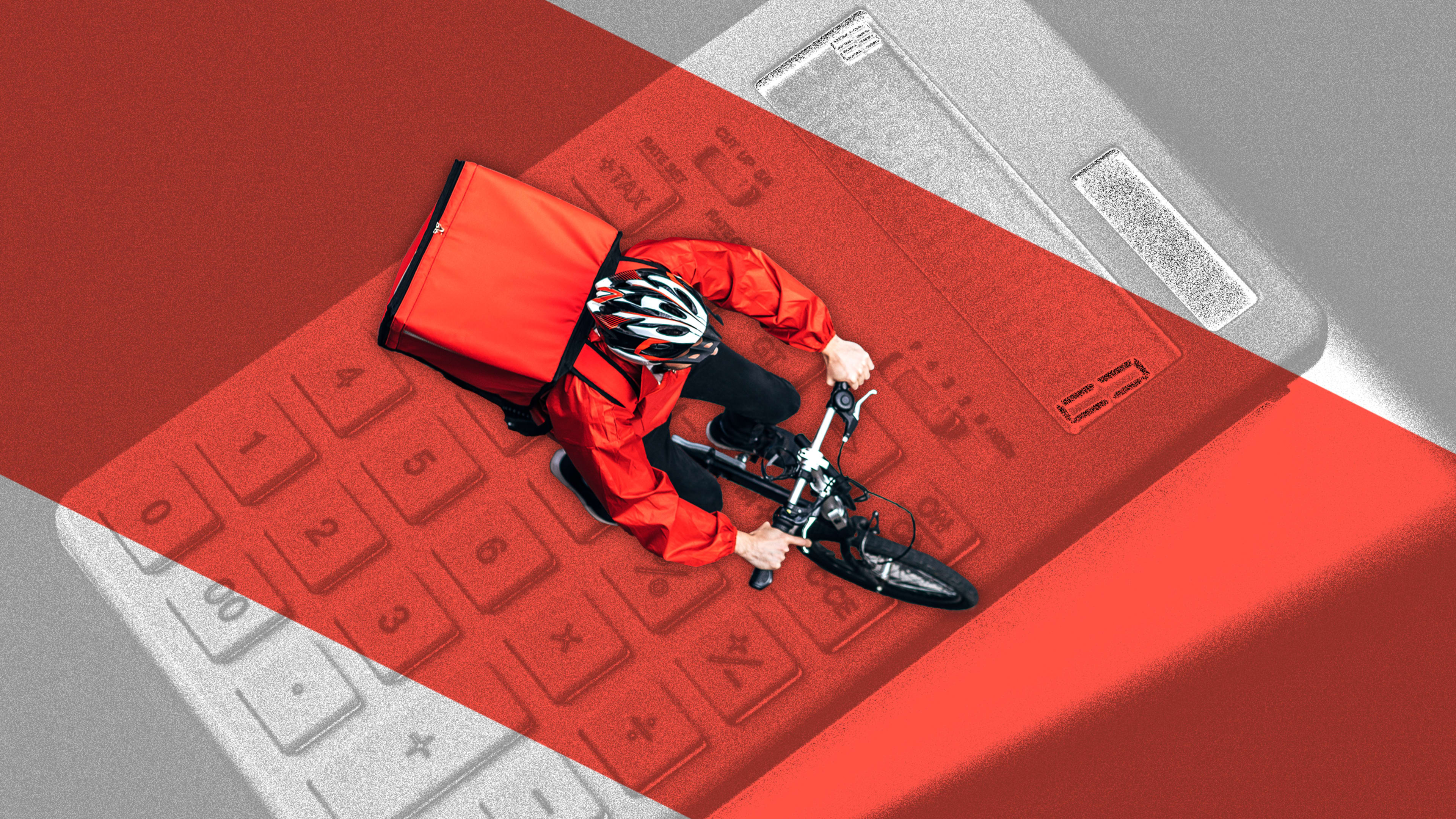After a protracted fight in the courts, a historic law took effect in December aimed at securing fair compensation for the 65,000 gig workers in New York City that enable food delivery services to stay in business. The law forces DoorDash, Grubhub, and Uber Eats to pay their workers a minimum of $17.96 an hour, or the equivalent if they opt to pay per delivery trip. By April 2025, another pay increase will bring their hourly wages up to nearly $20 an hour.
The minimum pay law is the first of its kind in the country and could be a major coup for delivery workers who previously earned only about $7.09 an hour excluding tips, according to a report by the NYC Department of Consumer and Worker Protection (DCWP). As individual contractors, delivery workers lack even basic labor protections and must shoulder the additional costs of gear and repairs. “I’m making about the same [amount] or more working just a few hours, [compared to] what I used to make working a whole day,” says William Medina, one of the lead organizers for Los Deliveristas Unidos, a coalition of delivery workers that was a driving force behind the law.
Another delivery worker, Alejandro Grajales, says he can now earn $100 in about four hours, when it used to require 10 hours of work. Across social media, delivery workers are sharing screenshots of their weekly earnings and urging their peers to drive safely rather than scrambling to complete orders. (A lesser-known service called Relay Delivery is currently exempt from the law, per an appeals court ruling, because it uses a different model that solely focuses on getting food from restaurants to customers.)
Just weeks after minimum pay was introduced, however, delivery workers are fighting to hold onto their gains. The law was designed in part to account for the rules imposed by delivery apps, which can penalize workers for long delivery times or limit when they can log on. But delivery workers claim these issues have been exacerbated, a move that many of them see as a direct response to the minimum pay requirements. The three apps that dominate the New York City market—DoorDash, Uber Eats, and Grubhub—all use some kind of verification process, which requires delivery workers to add information like a government-issued form of identification. But Medina alleges the companies have been cracking down on this process of late, leading some workers to get locked out of their accounts or fail to get approved in the first place.
Recognize your brand’s excellence by applying to this year’s Brands That Matter Awards before the final deadline, June 7.
Sign up for Brands That Matter notifications here.
